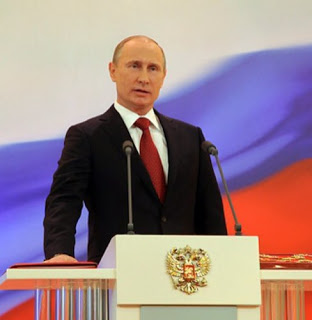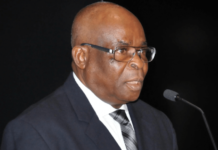Russian President Vladimir Putin has announced that 755 staff must leave US diplomatic missions, in retaliation for new US sanctions against Moscow.

The decision to expel staff was made on Friday, but Mr Putin has now confirmed the number who must go by 1 September.
It brings staff levels to 455, the same as Russia’s complement in Washington.
This is thought to be the largest expulsion of diplomats from any country in modern history, says the BBC’s Laura Bicker in Washington.
The number includes Russian employees of the US diplomatic missions across Russia, the BBC’s Sarah Rainsford in Moscow adds.
Staff in the embassy in Moscow as well as the consulates in Ekaterinburg, Vladivostok and St Petersburg are affected, she says.
The US said the move was a “regrettable and uncalled for act”.
“We are assessing the impact of such a limitation and how we will respond to it,” a state department official said.
Mr Putin did strike a conciliatory note, saying he did not want to impose more measures, but also said he could not see ties changing “anytime soon”.
Mr Putin told Russian television: “More than 1,000 people were working and are still working” at the US embassy and consulates, and that “755 people must stop their activities in Russia.”
Russia has also said it is seizing holiday properties and a warehouse used by US diplomats.
Mr Putin suggested he could consider more measures, but said: “I am against it as of today.”
He also noted the creation of a de-escalation zone in southern Syria as an example of a concrete result of working together.
However, in terms of general relations, he added: “We have waited long enough, hoping that the situation would perhaps change for the better.
“But it seems that even if the situation is changing, it’s not for anytime soon.”
The new US sanctions were in retaliation both for Russia’s annexation of Crimea in 2014 and Russian interference in the US election.
In December, the Obama administration ordered the seizure of two Russian diplomatic compounds and expelled 35 Russian diplomats in response to alleged hacking of the US Democratic Party and Hillary Clinton’s campaign.
The new US sanctions on Russia were overwhelmingly approved by both houses of Congress, despite objections from President Donald Trump who wants warmer ties between the two countries.
The White House said on Friday that he would sign the sanctions bill after fears he could veto it.
Mr Trump was believed to be particularly concerned about a provision in the new bill that limits his ability to lift sanctions – forcing him to consult Congress first.
Some European countries are also angry because the new law could penalise European companies that invest in big Russian oil and gas projects such as the new Nord Stream II pipeline.
US intelligence agencies believe Russia tried to sway the election in favour of Mr Trump and now there are several investigations looking into whether anyone from his campaign helped.
Russia has always denied interfering and Mr Trump insists there was no collusion.
BBC










